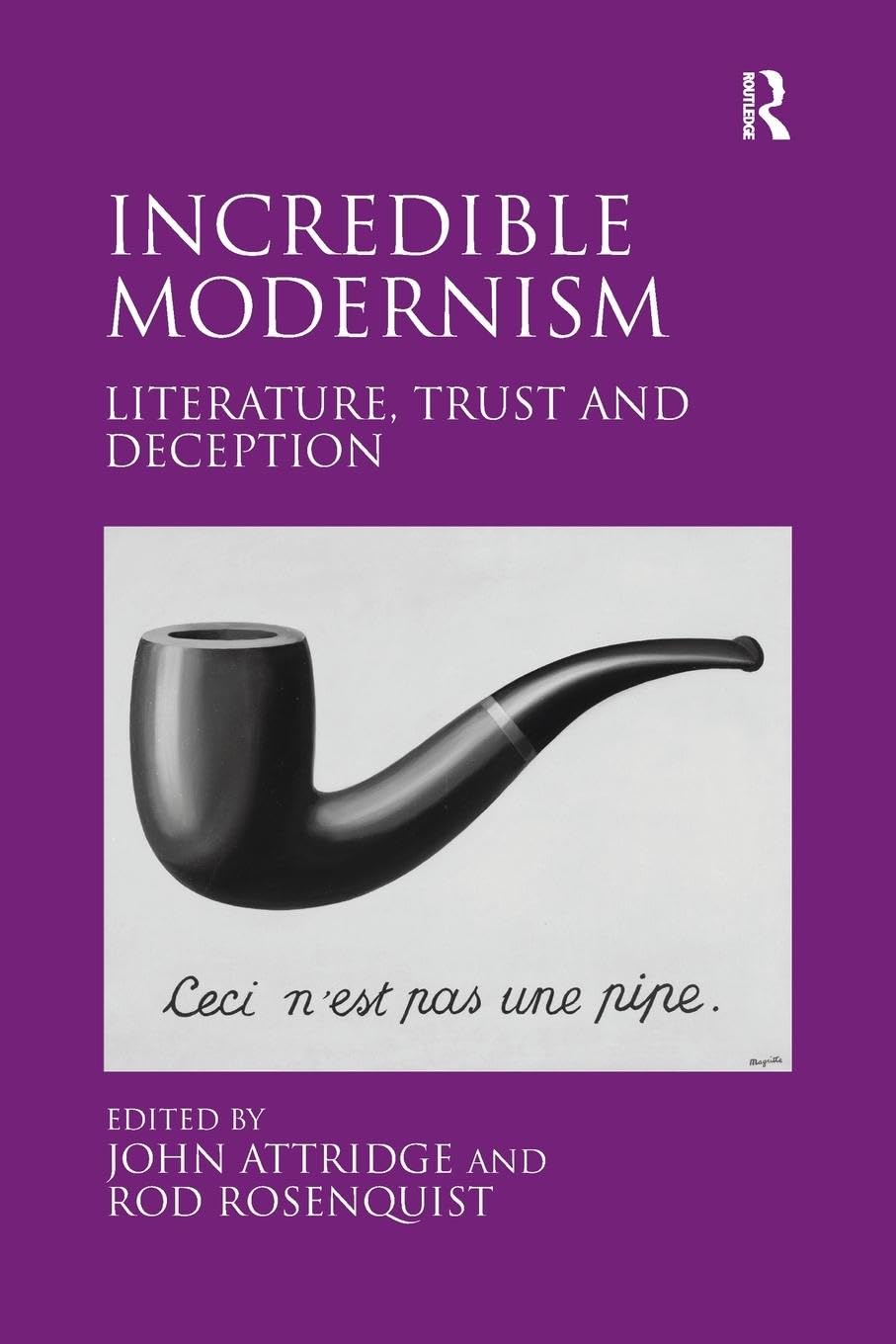Incredible Modernism: Literature, Trust and Deception
Incredible Modernism: Literature, Trust and Deception is backordered and will ship as soon as it is back in stock.
Couldn't load pickup availability
Genuine Products Guarantee
Genuine Products Guarantee
We guarantee 100% genuine products, and if proven otherwise, we will compensate you with 10 times the product's cost.
Delivery and Shipping
Delivery and Shipping
Products are generally ready for dispatch within 1 day and typically reach you in 3 to 5 days.
Book Details
• Book Name: Incredible Modernism: Trust and Fraudulence in Twentieth-Century Writing
• Format: Paperback
• Language: English
• ISBN-13: 9781138271678
• Writer: John Attridge
• Publisher: Taylor & Francis Ltd
• Pages: 264
• Binding: Paperback
• Subject/Category: Literature, Modernism
Details:
With the twentieth century came a new awareness of just how much an individual was obliged to accept on trust, and this heightened awareness of social trust in turn prompted new kinds of anxiety about fraudulence and deception.
Beginning with the premise that the traditional liberal concept of trust as a "bond of society" entered a period of crisis around the turn of the twentieth century, Incredible Modernism examines the profound influence of this shift on a wide range of modernist writers, including James Joyce, Marcel Proust, Gertrude Stein, Ezra Pound, Wyndham Lewis, H.D., Ford Madox Ford, Samuel Beckett, Ralph Ellison, and Wallace Stevens.
In examining the importance of trust and fraudulence during this period, the contributors explore a diverse set of topics, including reception, the institutions of modernism, the history of authorship, the nature of representation, authenticity, genre, social order, and politics. Taken as a whole, Incredible Modernism provides concrete historical coordinates for the study of twentieth-century trust while also arguing that the problem of trust is central to the institutions and formal innovations of modernism itself.





